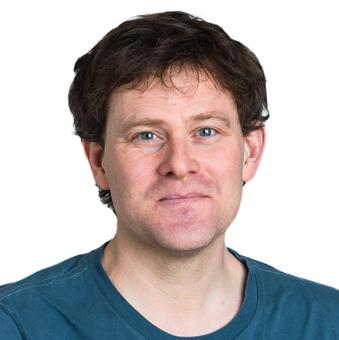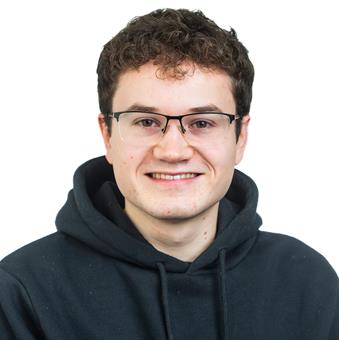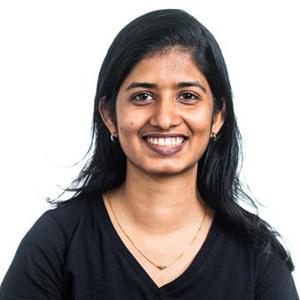To halt climate change, society must stop the use of fossil carbon in fuels, chemicals, and materials. Sustainable food production must also be developed. Catalysis is at the center of these changes! In the Catalysis and Self-Assembly Group, we are excited about heterogeneous catalysis and nanomaterials self-assembly. We combine these fields to enable more efficient synthesis of sustainable food, chemicals, and materials.
Catalysis and Self-Assembly (CATSA)
Combining self-assembly and heterogeneous catalysis to make sustainable chemicals and materials.
To halt climate change, society must stop the use of fossil carbon in fuels, chemicals, and materials. Sustainable food production must also be developed. Catalysis is at the center of these changes! In the Catalysis and Self-Assembly Group, we are excited about heterogeneous catalysis and nanomaterials self-assembly. We combine these fields to enable more efficient synthesis of sustainable food, chemicals, and materials.
Research
Heterogenous Catalysis
Heterogeneous catalysts are materials that speed up chemical reactions. They are needed to make things like fertilizers, medicines, fuels, and plastics. In short, we need them for most products! To make sustainable products competitive with fossil-based products, we need more efficient heterogeneous catalysts for many chemical reactions. Examples are production of H2 from water, production of chemicals from CO2, and production of food and materials from woody biomass.
Our mission is to develop fundamental concepts to improve catalysts for all these processes. We are guided by questions such as:
- What is the reaction mechanism in terms of elementary reaction steps?
- How can catalysts be optimized with respect to spatial distributions of active sites?
- How can the location of active sites be probed by innovative methods?
- How can scaling relations in catalysis be broken for more active catalysts?
- How can confinement effects be leveraged for more active and selective catalysts?
Representative publications: J. Am Chem. Soc. 2020, 142, 14481 ; ACS Catal. 2024, 14, 3191
Nanomaterials Self-Assembly
We develop self-assembly (spontaneous organization of small components into organized structures) to make new materials from nanoscale building blocks. We then explore applications of these materials in areas ranging from printed electronics to thermal insulation. Examples of questions that direct our efforts are:
- How should nanomaterials like cellulose nanofibers or graphene derivatives be hierarchically structured (e.g. in insulating foams, or in organic electronic devices)?
- What chemical functionalization should be applied to the nanoscale components to achieve self-assembly into the desired hierarchical structures?
We also use self-assembly to design model catalysts that we use to answer fundamental questions in heterogeneous catalysis.
Representative publications: Langmuir 2019, 35, 4460 ; Chem. Mater. 2018, 30, 2084
New Nanomaterials Characterization
Research Infrastructure
Our goal is to never limit ideas by available research infrastructure. The Catalysis and Self-Assembly group is located in the chemistry lab at the Laboratory of Organic Electronics. Here we are currently building a state-of-the-art lab for catalysis, nanomaterials synthesis, and self-assembly.
Examples of infrastructure that is being built include reaction lines for heterogeneous catalysis, and various characterization tools for functional materials.
The lab is also fully equipped for materials synthesis. In addition, we have access to great research infrastructure through shared facilities at LOE, and through national research facilities:
LOE Research Infrastructure
Electron Microscopy Center (Stockholm University)
myfab (network of micro- and nano-fabrication infrastructure)
Treesearch (infrastructure available within Wallenberg Wood Science Center)
Chalmers Materials Analysis Laboratory (wide range of advanced materials characterization)
Publications
2025
 Continue to DOI
Continue to DOI
2024
 Continue to DOI
Continue to DOI
 Continue to DOI
Continue to DOI
 Continue to DOI
Continue to DOI
2021
 Continue to DOI
Continue to DOI
People
Collaboration
Collaboration is essential to our research! We collaborate extensively within the Laboratory of Organic Electronics. We also collaborate extensively with groups from other institutions. Wish to collaborate? Contact Alexander Holm directly: alexander.holm@liu.se
Current external collaboration
The Wallenberg Wood Science Center
The Wallenberg Wood Science Center (WWSC) is a research center between three major universities in Sweden (KTH, Chalmers, and Linköping University). The vision of WWSC is that the forest can offer bio-based alternatives to fossil-based materials. In Sweden, WWSC is the largest initiative in the field, engaging circa 50 PhDs and 20 postdocs. Many members in our group become members of WWSC, providing them with a large research and professional network that they can use in their future careers. For more information, visit WWSC.
Matteo Cargnello
Professor Cargnello's research profile at Stanford University
Cheuk-Wai Tai
Dr Tai's research profile at Stockholm University
Information about the Tai group
Lennart Bergström
Professor Bergström's research profile at Stockholm University
Marc Hellmuth
Professor Hellmuth's research profile at Stockholm University
Join us!
Postdoctoral scholars
We always look for talented postdocs. If you are passionate about heterogeneous catalysis, self-assembly, advanced electron microscopy, or related fields, please email Alexander Holm at alexander.holm@liu.se. Please include your CV, and a short description of your scientific interests. Your interests do not have to completely match what we already do in the group! With strong candidates, we are happy to write joint proposals for postdoctoral programs such as the Marie Skłodowska-Curie Actions.
PhD students
We hire PhD students through open calls, placed at the Linköping University job-pages


